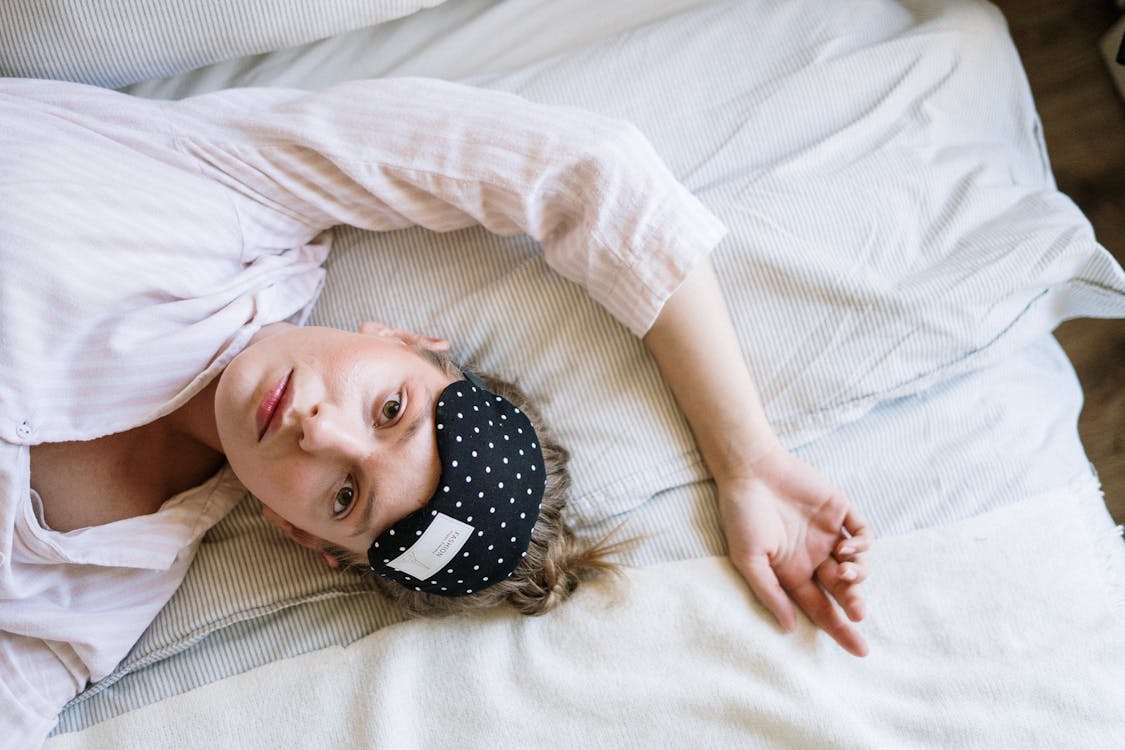Sleep & Women’s Health: Quality, Duration and Consistency Matters
5 minuteRead

After a long, tiring day at work, we all look forward to getting a good night’s sleep, right? Well, unfortunately, it’s a privilege not many women get to enjoy. Sleep affects our mental and physical health, and well-being. When you sleep well, you’re in a better mood, and are less likely to be lethargic.
Women who don’t sleep enough are more likely to develop sleep disorders including insomnia, sleep apnea, narcolepsy and restless leg syndrome. Tossing and turning in bed for hours before actually going to sleep can worsen your health. Remember, your body needs time everyday to rest and heal. The duration for which you sleep is directly proportional to your mental health. Continuous lack of sleep is linked to several health-related conditions such as obesity, type 2 diabetes, dementia, heart disease, weight gain, and more. You’re probably wondering how many hours of sleep do you need?
Well, experts suggest that an average adult woman needs between 7.5 and 8 hours of sleep per night to feel fully refreshed the next day.

Health Problems Caused Due to Lack of Sleep
- Weight Gain: Sleep loss has been linked to enhanced appetite. The Duke study found that women who are poor sleepers tend to be more overweight than men who have sleep problems. Due to lack of sleep, a lot of people tend to binge-eat foods that are high in calories and carbohydrates. This results in weight gain and obesity over a period of time.
- Type 2 Diabetes: When you sleep, a number of hormones are released which control the body’s use of energy. Not getting enough sleep or not sleeping at the right time can cause a distinct rise and fall in blood sugar levels. Since sleep deprivation impairs glucose tolerance, women are at a higher risk for type 2 diabetes. They have higher levels of insulin and blood sugar than men.
- Hypertension: Continuous lack of sleep at night can cause high blood pressure and heart diseases in women.

Reasons Why Women have more Sleep Problems than Men
The primary reason why women tend to have more sleep problems than men is because they experience hormonal changes during certain life events. Some of them include:
- Premenstrual Syndrome (PMS): Menstrual cycle hormones affect how well women sleep. Women with PMS usually report trouble sleeping. It usually occurs the night before their menstrual flow starts. Owing to the drop in progesterone levels, sleep patterns are disrupted. It is a hormone that actually induces sleep during the second half of the menstrual cycle.
- Pregnancy: Pregnancy and sleep disorders are interlinked. Women in their third trimester wake up more often than usual at night because of discomfort, uncomfortable sleeping positions, leg cramps or frequent bathroom trips. Also, restless leg syndrome is also common in pregnancy owing to the iron deficiency several women face. Some studies even reveal that pregnant women face psychological issues such as intrusive thinking and worrying which further disrupts their regular sleep routines.
- Perimenopause: Women who are in their early fifties report more sleep difficulties than younger women. This is primarily linked to menopause since they have lower concentrations of progesterone. Symptoms of menopause such as hot flashes and night sweats affect the sleep quality and quantity in women.

Types of Sleeping Disorders
- Sleep Apnea: A common sleep disorder that often goes underdiagnosed in women is sleep apnea. It happens when the airway gets blocked repeatedly during sleep, which causes breathing to stop for short amounts of time. Snoring is one of the main signs of sleep apnea. It can further lead to insomnia, anxiety and nightmares.
- Insomnia: The inability to fall asleep or stay asleep is referred to as insomnia. It is common in women who have severe depression and anxiety. If not treated in time, it can lead to high stress levels, less motivation and unhealthy food choices.
- Restless Leg Syndrome: More women than men experience restless leg syndrome. It is an uncontrollable urge to move your legs. Tossing and turning also comes under this sleep disorder. While it happens most often during pregnancy, certain medication used to treat depression can also cause restless leg syndrome.
Impact of the COVID-19 Pandemic on Pre-existing Sleep Disorders in Women
There are no two thoughts about the fact that the COVID-19 pandemic has impacted all our lives. Since it has led to changes in the normal day-to-day routine for many people, sleep routines have taken a hit. Balancing work, household tasks and home-schooling of children has resulted in women staying awake late and waking up early. Quarantine and isolation are also linked to poor sleeping patterns.
Since sleep is said to affect mood, memory and learning, here are a few measures women can take to ensure they get healthier sleep:
- Have a consistent bedtime and wake time, ensuring adequate quantity and quality of sleep. Quality sleep results in sleep satisfaction. If a person is satisfied with their sleep, they usually wake up feeling refreshed. However, remember, both insufficient and excessive sleep are detrimental to health. During a 24-hour period, an average adult woman should only sleep for 7 to 8 hours.
- Avoid day time naps. If you’re in a habit of taking power naps, restrict it to only 20 minutes.
- Earlier in the day try to get as much natural light as possible. You can even go for a morning or lunchtime stroll.
- Keep gadgets such as laptops, iPads and mobile phones away just when you’re about to sleep. Also, remember to turn off any kind of bright light.
- Cultivate the habit of bedtime rituals such as reading, having a shower or simply listening to sleep music.
- Avoid caffeine, and foods high in sugar and fats just before sleeping.
- Get enough physical activity during the day. This will make sure you’re tired and want to hit the sack. However, don’t overdo it, and avoid working out just before bedtime.
- Limit the time you are exposed to COVID-19 related news.
- Seek professional help if you’re unable to deal with stress and anxiety.
Getting good sleep isn’t just important for your energy levels and well-being but is critical for your health too. Therefore, the secret to a happy life is – “Early to bed and early to rise makes a man healthy, wealthy, and wise”.
Write, Record and Answer! Consume Unlimited Content! All you need to do is sign in and its absolutely free!
Continue with one click!!By signing up, you agree to our Terms and Conditions and Privacy Policy.










